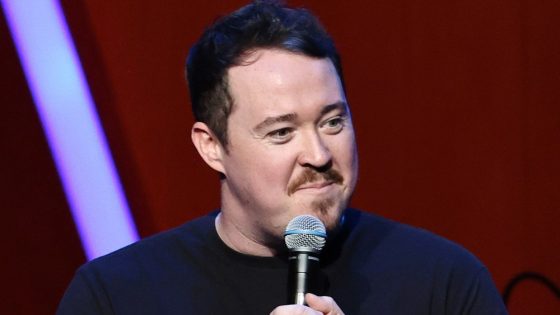After a tumultuous week at The Washington Post, including the unexpected announcement of a new editor and reports that its chief executive objected to coverage of a news story involving him, leaders at the news organization spent Friday trying to reassure the staff.
In a conciliatory memo to employees Friday evening, Will Lewis, the chief executive, acknowledged that “trust has been lost” because of “scars from the past and the back-and-forth from this week.” He urged Post employees to “leave those behind and start presuming the best of intent.”
“So, time for some humility from me,” Mr. Lewis wrote. “I need to improve how well I listen and how well I communicate so that we all agree more clearly where urgent improvements are needed and why.”
Matt Murray, the new editor, acknowledged the turmoil in the morning news meeting. He praised the newsroom for its work, including an unflinching article about the questions surrounding Mr. Lewis that it published on Thursday night.
Mr. Murray, a former editor in chief of The Wall Street Journal, said he knew staff members were talking about the challenges facing The Post but encouraged them to “have your heads held high, feel proud of the journalism,” according to a recording obtained by The New York Times.
He said he had recused himself from working on the article about Mr. Lewis.
In addition, Patty Stonesifer, the widely respected former interim chief executive of The Post and a close confidante of The Post’s owner, Jeff Bezos, visited the newsroom on Friday. Ms. Stonesifer helped choose Mr. Lewis as chief executive last year.
Ms. Stonesifer met with senior editors and other journalists to help quell the anxiety stemming from the week’s tumult, according to two people familiar with the matter.
The newsroom was rattled on Sunday evening when Mr. Lewis announced that Sally Buzbee was resigning as the paper’s editor, and that Mr. Murray would temporarily replace her.
Mr. Lewis also announced a major reorganization. After the election, Mr. Murray will oversee a new division, focused on service and social media journalism. And a new editor, Robert Winnett, will oversee the core news coverage after the presidential election.
The Times later reported that Mr. Lewis and Ms. Buzbee had clashed over whether to cover a news development in a British hacking scandal. The judge in the case was expected to say whether the plaintiffs could add Mr. Lewis’s name to a list of executives who they argued were involved in a plan to conceal evidence of hacking at the newspapers.
Mr. Lewis objected to covering the story, according to two people with knowledge of the interaction. He has said the account of their exchange was inaccurate.
On Thursday, David Folkenflik, a media reporter for NPR, wrote that last year Mr. Lewis proposed giving him an exclusive interview in exchange for not writing an article on the phone-hacking scandal. Mr. Lewis told The Washington Post that he had had off-the-record conversations with Mr. Folkenflik, whom he called “an activist, not a journalist.”
Leaders of the Washington Post Guild, which represents members of the newsroom, sent a letter to Mr. Murray on Friday asking him to commit to journalistic independence, according to a copy of the letter viewed by The Times.
In a note to the staff later in the day, Mr. Murray praised The Post’s journalism and affirmed his commitment to its journalistic integrity, noting, “The importance of our strong and independent journalism, immune to any outside pressures.”
Mr. Lewis had enjoyed a relatively smooth run for his first five months in the job. He made a habit of reading reporters’ articles early in the morning and sending them notes of praise and regularly chatted at their desks, building up good will.
Ms. Stonesifer said in an interview with The Post last year that she and Mr. Bezos decided on Mr. Lewis in part because he had spent years “first and foremost as a journalist — and then switched to say that great journalism needs great business.”
Source Agencies



